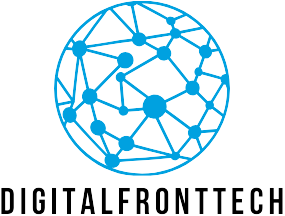In a world where technology seems to solve everything from ordering pizza to finding love, why should government be left behind? Enter govtech startups, the innovative heroes ready to rescue bureaucratic processes from the clutches of inefficiency. These nimble companies are shaking up how governments operate, making them more transparent, efficient, and user-friendly—no cape required.
Imagine a future where your tax forms fill themselves out, public services are just a click away, and government transparency isn’t just a buzzword. Govtech startups are on a mission to turn that dream into reality, and they’re doing it with a dash of humor and a whole lot of savvy. As they tackle challenges head-on, they’re not just changing the game; they’re rewriting the rulebook. Join the ride to discover how these startups are redefining the relationship between citizens and their governments.
Overview of Govtech Startups
Govtech startups represent a rapidly growing sector focused on enhancing government functions through technology. These ventures innovate to improve public services, making them more efficient and accessible. Increasingly, they focus on user-centered design, ensuring citizens find it easier to interact with government services.
Innovation often addresses challenges such as long response times and bureaucratic inefficiencies. For instance, companies create platforms that streamline citizen engagement, enabling real-time feedback. Automation plays a crucial role, with various startups developing tools that simplify processes like tax filing and permit applications.
Investment in govtech startups is on the rise, reflecting their importance in modern governance. According to recent data, these companies attracted over $300 million in funding during 2022. This influx of capital allows them to develop and scale solutions that benefit both governments and citizens.
Collaboration between startups and government agencies fosters mutual growth. Together, they identify specific pain points, tailoring solutions to meet unique needs. This partnership often results in pilot programs that test and refine technologies in real-world settings.
Market demand drives the expansion of govtech solutions. Citizens now seek transparency and accountability from their governments, pushing startups to innovate further. The trend of incorporating data analytics allows governments to make informed decisions, improving service delivery for communities.
Overall, the landscape of govtech startups evolves quickly, adapting to the changing needs of society. Their contributions are shaping a more efficient and responsive governmental system, paving the way for a future where technology and public service go hand in hand.
Key Players in the Govtech Space

Govtech is home to a diverse array of startups and established companies innovating government operations. These key players enhance public service delivery through technology.
Emerging Companies
Emerging companies are crucial in reshaping government services. Startups like CityBase and PostCo offer platforms that streamline citizen interactions and simplify processes. They provide solutions for bill payments, service requests, and communication with local authorities. Their fresh ideas prioritize user experience and efficiency, addressing specific public sector challenges. Funding for these startups reached $300 million in 2022, showcasing significant investor interest and market demand. This growth attracts more innovative minds ready to tackle the ever-evolving needs of governments and citizens alike.
Established Innovators
Established innovators play a vital role in the govtech landscape. Companies like Granicus and Tyler Technologies have long histories in delivering technology solutions to government agencies. Granicus focuses on improving civic engagement through content management and communication tools. Meanwhile, Tyler Technologies specializes in integrated software systems, enhancing financial and operational efficiency for public entities. These companies leverage years of experience and established relationships, ensuring their solutions align with governmental requirements. Their longevity and expertise contribute to the ongoing transformation of how public services are delivered.
Challenges Faced by Govtech Startups
Govtech startups encounter several significant challenges as they navigate the evolving landscape of public sector technology.
Regulatory Hurdles
Regulatory aspects pose a major challenge for govtech startups. Compliance with government regulations can create complexities that often slow down innovation. Navigating diverse regulations across different jurisdictions adds to the burden. Startups must invest significant time and resources to understand legal requirements before deploying their solutions. Adhering to data protection laws and procurement processes also creates barriers. Startups typically find that engaging with government entities early in development provides critical insights for compliance. Demonstrating security and reliability is essential in gaining government trust.
Funding Issues
Securing financial resources stands as one of the main difficulties for govtech startups. Despite the $300 million funding attracted in 2022, many startups struggle to find investors specifically focused on public sector solutions. Traditional venture capitalists often prefer higher immediate returns seen in other sectors. Additionally, inconsistent funding cycles can disrupt growth plans for startups, making it hard to attract talent and scale operations. Building relationships with government stakeholders can aid in obtaining grants and pilot programs. Collaboration with established entities often creates pathways to sustainable funding models that align with public sector growth.
Success Stories and Impact
Govtech startups show significant impact through innovative solutions enhancing public service delivery. Progress is evidenced by specific case studies answering real-world challenges faced by government agencies.
Case Studies
PostCo stands out with its streamlined mail-in ballot process, improving voter engagement. The startup reduced processing time by over 40%, allowing citizens to participate easily in elections. CityBase transformed utility payments, integrating a user-friendly platform that cut down payment times by 30%. Through better design, these companies demonstrate how technology can address pressing governmental issues effectively.
Measurable Outcomes
Investments in govtech yield remarkable results, as observed in various municipalities. Cities that adopted Granicus for public engagement saw a 50% increase in resident participation in surveys. Tyler Technologies noted a 32% reduction in operational costs post-implementation of their software solutions. These measurable outcomes highlight the effectiveness of govtech innovation in fostering accountability and enhancing efficiency in government operations.
Future Trends in Govtech Startups
Govtech startups are on the brink of major advancements that will redefine public service delivery. Emerging technologies like artificial intelligence and blockchain offer opportunities to enhance transparency and security in government operations. Increased focus on user experience positions these startups to create more intuitive digital interfaces for citizens.
The integration of data analytics continues to drive innovation in service delivery. Startups leverage data to improve decision-making, enhancing engagement with citizens. Enhanced platforms for real-time feedback allow governments to adapt services based on actual citizen needs.
Sustainability initiatives are also shaping the future of govtech. Startups are developing eco-friendly solutions to help governments address climate change challenges. Strategies to streamline resources and reduce waste connect technology with environmental goals.
Investment trends show a significant upward trajectory, with funding for govtech exceeding $300 million in 2022. This increase enables startups to sprint towards innovative solutions, affirming the sector’s potential. Startups are also forming partnerships with government agencies, fostering collaboration that leads to tailored technology for specific challenges.
Continuing focus on accountability drives the development of tools that enhance public trust. Startups aim to establish transparent processes, encouraging citizen participation in governance. Platforms that ensure access to information empower citizens and enhance the relationship between governments and their constituents.
Anticipating future growth, startups are addressing regulatory hurdles head-on. Innovative approaches to compliance simplify the navigation of complex legal environments. Building connections with government stakeholders allows startups to access vital resources, facilitating smooth progress in overcoming funding challenges.
Govtech startups are paving the way for a more efficient and transparent relationship between citizens and their governments. By harnessing technology and innovative solutions, these companies are addressing long-standing bureaucratic challenges while enhancing user experience. As investment in this sector continues to rise, the potential for transformative change becomes even more pronounced.
The collaboration between startups and government agencies fosters tailored solutions that meet specific needs, driving accountability and citizen engagement. With advancements in AI and data analytics on the horizon, the future looks promising for the govtech landscape. As these startups navigate challenges and seize opportunities, they’re set to redefine public service delivery for years to come.






